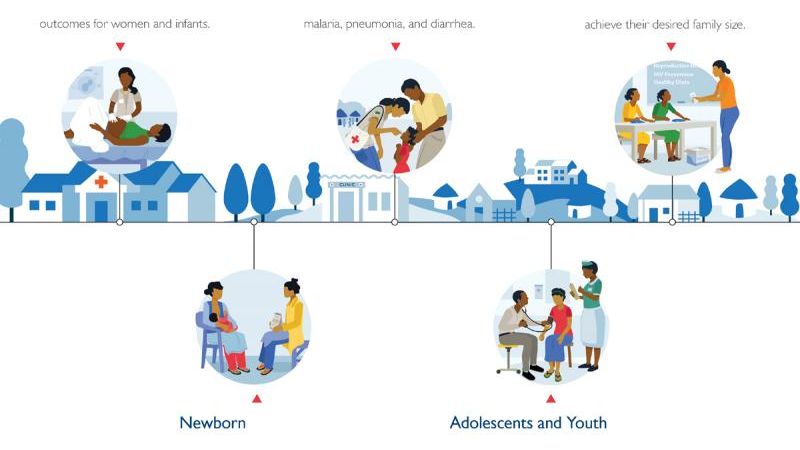Family healthcare is a cornerstone of the medical field, providing comprehensive care for individuals of all ages. As a broad and inclusive discipline, family medicine addresses a wide range of health concerns, from preventive care to chronic disease management, ensuring that every family member receives the best possible care throughout their lives. In this detailed article, we will explore the essential aspects of family healthcare, its benefits, and why it is a critical component of the healthcare system.
What is Family Healthcare?
Family healthcare is a medical specialty that focuses on the holistic health needs of individuals and families. Family physicians are trained to provide a wide range of healthcare services, including:
- Preventive Care: Routine checkups, immunizations, health screenings, and lifestyle counseling.
- Chronic Disease Management: Ongoing care for conditions such as diabetes, hypertension, asthma, and arthritis.
- Acute Care: Treatment for sudden illnesses and injuries.
- Mental Health: Diagnosis and management of mental health conditions like depression, anxiety, and stress-related disorders.
- Geriatric Care: Specialized care for older adults, addressing issues related to aging and multiple chronic conditions.
- Pediatric Care: Monitoring growth and development, providing vaccinations, and treating common childhood illnesses.
The Importance of Preventive Care
Preventive care is a fundamental aspect of family healthcare. It aims to prevent diseases before they occur, promoting overall health and well-being. Key components of preventive care include:
Routine Checkups
Regular health examinations are vital for detecting potential health issues early. These checkups allow family physicians to:
- Monitor vital signs such as blood pressure, cholesterol levels, and body mass index (BMI).
- Identify risk factors for diseases and implement strategies to mitigate them.
- Provide personalized advice on maintaining a healthy lifestyle.
Immunizations
Vaccinations are crucial in preventing infectious diseases. Family physicians ensure that patients are up-to-date with their immunizations, protecting them from illnesses such as:
- Influenza
- Measles, Mumps, and Rubella (MMR)
- Tetanus, Diphtheria, and Pertussis (Tdap)
- Human Papillomavirus (HPV)
Health Screenings
Screening tests help detect diseases at an early stage when they are most treatable. Common screenings include:
- Cancer Screenings: Mammograms, Pap smears, colonoscopies.
- Chronic Disease Screenings: Blood glucose tests for diabetes, lipid panels for cholesterol levels.
- Bone Density Tests: Screening for osteoporosis in older adults.

Managing Chronic Diseases
Chronic diseases require long-term care and management. Family physicians play a critical role in helping patients manage their conditions through:
Personalized Treatment Plans
Each patient’s treatment plan is tailored to their specific needs, taking into account their medical history, lifestyle, and preferences. This personalized approach ensures effective management of chronic conditions.
Medication Management
Family physicians prescribe and monitor medications, adjusting dosages as needed to control symptoms and prevent complications. They also educate patients on the importance of medication adherence.
Lifestyle Modifications
Lifestyle changes are often necessary for managing chronic diseases. Family physicians provide guidance on:
- Diet: Recommending balanced, nutritious diets to manage conditions like diabetes and hypertension.
- Exercise: Advising on appropriate physical activity to improve overall health.
- Stress Management: Techniques to reduce stress, which can exacerbate chronic conditions.
Coordinated Care
Family physicians often act as the central point of contact in a patient’s healthcare journey, coordinating care across different specialties. This ensures that all aspects of a patient’s health are addressed, leading to better health outcomes. Key elements of coordinated care include:
Referrals to Specialists
When specialized care is needed, family physicians refer patients to the appropriate specialists. They ensure that patients receive timely and comprehensive care, maintaining communication with specialists to monitor progress.
Follow-Up Care
After specialist visits or hospital stays, family physicians provide follow-up care to ensure continuity. This includes monitoring recovery, managing ongoing treatments, and addressing any new health concerns.
Integration with Other Healthcare Providers
Family physicians collaborate with other healthcare professionals, such as nutritionists, physical therapists, and mental health counselors, to provide holistic care. This integrated approach addresses all aspects of a patient’s health.
Mental Health in Family Healthcare
Mental health is an integral part of overall well-being. Family physicians are trained to recognize and treat a variety of mental health conditions, providing support and resources to patients. Key aspects of mental health care in family healthcare include:
Diagnosis and Treatment
Family physicians diagnose and treat common mental health conditions, such as:
- Depression: Providing counseling, medication, and support to manage symptoms.
- Anxiety: Offering therapy and coping strategies to reduce anxiety levels.
- Substance Abuse: Assisting with treatment plans and referrals to specialized programs.
Counseling and Support
Family physicians offer counseling and support for mental health issues, helping patients navigate life’s challenges. They provide a safe space for patients to discuss their concerns and receive appropriate care.
Geriatric Care
Caring for older adults requires specialized knowledge and skills. Family physicians provide comprehensive geriatric care, addressing the unique health needs of seniors. This includes:
Management of Multiple Chronic Conditions
Older adults often have multiple chronic conditions that require careful management. Family physicians coordinate care to ensure that all conditions are addressed effectively.
Mobility and Fall Prevention
Falls are a significant risk for older adults. Family physicians assess mobility and implement fall prevention strategies, such as recommending physical therapy and home safety modifications.
Cognitive Health
Cognitive decline is a concern for many seniors. Family physicians monitor cognitive health, providing early interventions for conditions like dementia and Alzheimer’s disease.
Pediatric Care
Family healthcare also encompasses pediatric care, ensuring that children receive the necessary medical attention as they grow and develop. Key aspects of pediatric care include:
Growth and Development Monitoring
Regular checkups monitor a child’s growth and development, identifying any potential issues early. Family physicians track milestones and provide guidance to support healthy development.
Vaccinations
Vaccinations protect children from serious illnesses. Family physicians ensure that children receive all recommended vaccines according to the immunization schedule.
Treatment of Common Childhood Illnesses
Family physicians diagnose and treat common childhood illnesses, such as ear infections, colds, and flu. They provide advice on managing symptoms and preventing complications.
Choosing a Family Healthcare Provider
Selecting the right family healthcare provider is crucial for receiving quality care. Consider the following factors when choosing a provider:
Credentials and Experience
Verify the provider’s education, training, and board certification. Experience in family medicine ensures that the provider is equipped to handle a wide range of health issues.
Reputation and Reviews
Look for recommendations and reviews from other patients. Positive feedback indicates a provider’s reliability and quality of care.
Communication and Comfort
Choose a provider who communicates clearly and makes you feel comfortable. A strong doctor-patient relationship is essential for effective care.
Accessibility and Location
Consider the location of the provider’s practice and their availability for appointments. Convenient access to care is important for maintaining regular health checkups and addressing health concerns promptly.
Conclusion
Family healthcare is an essential component of the healthcare system, providing comprehensive, continuous, and personalized care for individuals of all ages. By focusing on preventive care, managing chronic diseases, coordinating care, and addressing mental health, family physicians ensure that patients receive the highest quality of care. Whether caring for infants, adults, or seniors, family healthcare providers play a pivotal role in promoting health and well-being within the community.



